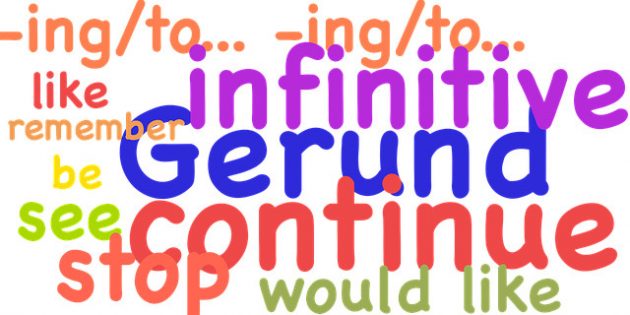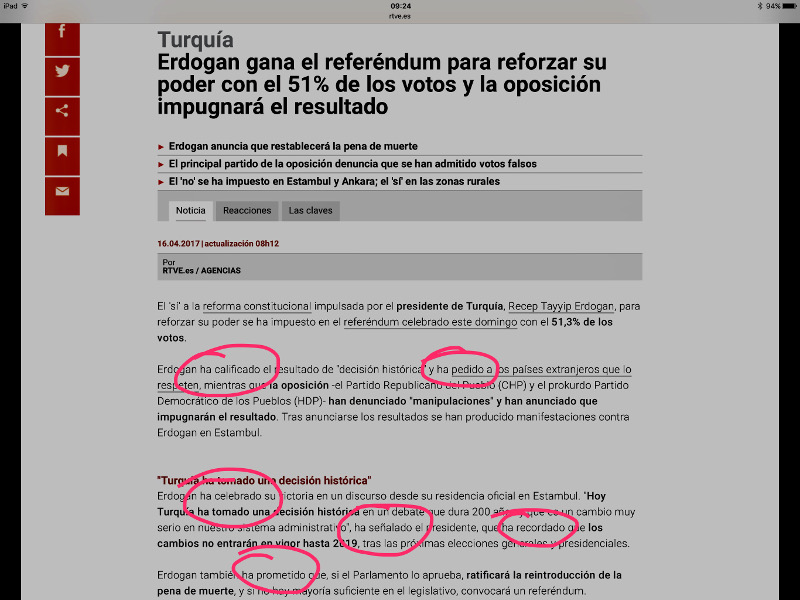Every morning I put on the Spanish language radio station and have that in the background to help tune my brain.
I think I wrote about how words have started to jump out at me yesterday.
Slowly I expect the meaning to emerge too with a corresponding increase in understanding as well.
It has been a big realisation for me this morning. To really understand what the learning process is going to be like.
And I mean the true learning process, not the one force fed by educational systems (see my brief rant about formal language training at the end of yesterday’s post!).
I remember a few years ago I went to a local college to see what language learning was like in the classroom as part of some research I was doing on pure memory techniques.
I was appalled at the regimented style of the teacher who insisted on shouting German words at the class and have them repeat them loudly back to her.
On one hand it felt like a very poorly run class. On the other there were tones of fascism (I kid you not!) in her insistence on being in control and having the class do or say exactly what she wanted them too.
It was quite a dreadful experience and I could see the pupils were about as disengaged as they could possibly be.
(Another) Rant Over – Back To Spanish Radio
Anyway I digress.
So as well as listening to the radio, as I eat my breakfast, I have also started browsing the Noticias (news) on the site as well.
It is also part of my immersion training.
An attempt at flooding and perhaps swamping my conscious and subconscious with Spanish. It is a way of re-tuning my brain to the music of the language and perhaps even pick up some new learning.
It is definitely serving as a confirmation and reminder of the things that I have already learnt when I re-encounter them on the radio.
This morning a couple of things happened.
First of all a major milestone.
I picked up something that has happened in the news purely from reading a Spanish language website.
Yippeeeeeee!
I discovered that Erdogen has won the referendum for political reform in Turkey.
He won by a 51.3% margin and has hailed it as a milestone in Turkey’s history (he did that from his residence in Istanbul).
All of that was picked up just from reading the Spanish news site.
Even as I write this now, the implications of that are only just dawning on me.
I have actually functioned as a Spanish speaking person in the world.
Ok, all I have done is pick up a bit of news, BUT I had to read the article. Well perhaps decipher is more of an accurate description.
And it was done without referring to any dictionary or online translation.
Ok I didn’t understand every word.
In fact I only understood a few words from the mass of writing in the article.
BUT…
I was able to make sense of the main theme and point of the piece.
Erdogen won the referendum. Other words implied other stuff but now I am getting into the grey areas of my understanding.
There was something about the opposition party but I am not sure whether they have accepted or have challenged the result. I didn’t know what the verb used meant.
But I am sure that will come in time.
It actually feels really empowering to know that I have for a brief moment functioned as a Spanish Speaker.
I am quiet bowled over by that.
I think we forget what we achieve because we keep comparing what we do to what we want to do.
A very wise chap called Peter Gardonyi once shared this quote with me:
“We judge ourselves by our intentions, but others will judge us by our results”.
Ok so my intention is to become proficient if not fluent in Spanish. As I “read” the news piece I was well aware of all of the words I didn’t understand.
To An Outsider It Looked Like I Was Fluent!
However if someone was watching what I was doing and then asked me what the piece was about, here’s what they would have experienced.
They would have seen someone scanning something in Spanish and then give a succinct summary of the piece in English.
It would have appeared that I had read and understood the piece well enough to have “translated” it to another English speaking person!
If I can put my modesty aside for a moment. I think it was quite a feat of linguistics for someone who’s mother tongue is English (and has been for the past 51 years).
Now let’s put that major realisation/breakthrough to one side for a moment because there was also something else quite powerful that happened.
You see the brain likes patterns.
It likes to spot repeated stuff because with repetition and consistency comes certainty.
And because a pattern is something that is repeated, there is less brain processing power required to process something that has been seen before.
Another interesting brain fact – the brain likes to conserve energy. It doesn’t like to think too hard because thinking takes up energy. And the brain wants to keep a reserve of energy to keep living because once it is all gone, it’s gone.
As the brain is programmed for a time when it was kill or be killed, the more efficient it can be the better the chances are for its survival.
In fact the brain has a part specifically for processing stuff that is habitual. It is called the Basal Ganglia and is the part of the brain where habits are processed. These are things we can do without even having to think about them.
So with this as a background, it is no wonder that the brain likes to spot patterns.
Where am i going with this?
Well here is the page about Erdogen’s referendum victory from the rtve.es website. I have highlighted a pattern that I spotted this morning whilst “reading” this piece.
When You See A Pattern – Explore It
As you will see, I have have highlighted the piece a number of times.
Whilst I was reading this I kept noticing the word “ha” (pronounced with a silent “h”) appear.
In fact it appeared at least six times in the piece and probably more too further down the page.
It stood out because of the repetition.
Now each time it appeared it was with a verb. But what I noticed was each time, the form of the verb ended in -do:
ha calificado
ha pedido
ha celebrado
ha recordado
ha prometido
Two things jumped out here – the use of the word “ha” and the “-do” ending to the verb.
What does that mean?
Well it was over to google translate to find out what was going on. Here are the translations I found:
ha calificado – has rated
ha pedido – has asked
ha celebrado – has celebrated
ha recordado – has remembered
ha prometido – has promised
Well I know the last one is suspect because when has a politician ever promised something – and fulfilled on it!
I digress.
Don’t Learn Grammar, Discover It
So it seems the use of “ha” followed by the verb”XYZ” ending in “-do” means “has XYZ’ed”.
Now I am sure there is a whole grammatical lesson waiting in the shadows to explain what is going on using words like conjugation, subjunctive etc etc.
But those are words half crazed junior language teachers use to impress their peers and intimidate and bully their students with.
I don’t know about you, but I didn’t have to learn about things like conjugations and cases and subjunctives to become proficient in English.
I just absorbed the language by listening and noticing and copying and experimenting and adjusting as time went on.
And so this is a perfect example of what happens when you learn a language naturally. I have spotted a pattern and I have made my own sense of it.
Later on I will start diving into specifically understanding grammar which will be inevitable to make more rapid progress. So when I come across the lesson that results in the use of “ha” and plonking a “-do” on the end of a form of a verb I will exclaim this:
“Aha!!! I’ve seen this in action before”
And because of that experience, I will be infinitely more likely to pay attention to the lesson and strengthen that part of my understanding of the use of Spanish even further.
It is the learning equivalent of the phrase we use on the leadership programmes I deliver – “trust but verify” – or am i getting too deep and meaningful there?








Leave A Response